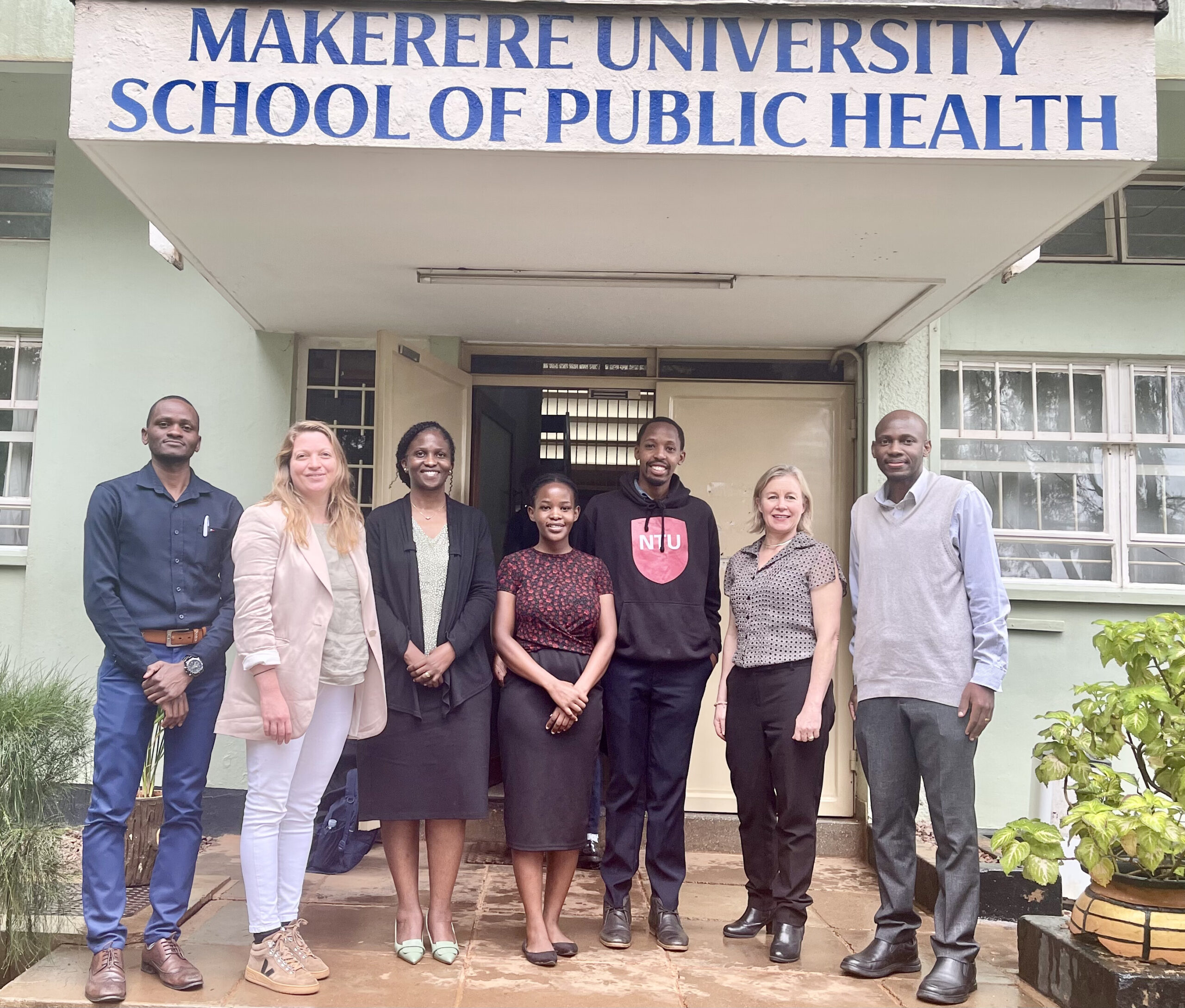Building a healthier future: how UK-Uganda partnerships are transforming lives
6 May 2025

Healthcare is stronger when countries work together, sharing expertise, innovation and resources. The Global Capacity Building (GCB) programme, funded by NHS England and delivered by Global Health Partnerships (formerly THET), connects NHS institutions in England with health organisations in Uganda, Zambia, and South Africa. This initiative strengthens healthcare, improves training, and saves lives. The GCB programme supports projects of varying scale and duration, with eleven small grants of £10,000 each over nine months and seven large grants of £50,000 each over 18 months.
Investing in skills and innovation
Uganda is home to ten GCB projects making a real difference – eight have been running since January 2024, and two more started in October 2024. NHS volunteers are working alongside Ugandan health workers in person and online to deliver projects that focus on strengthening healthcare capacity, from reducing newborn deaths to training the next generation of medical leaders . Both sides benefit – UK NHS staff gain new skills and knowledge, while Ugandan healthcare workers receive hands-on training and critical resources. Through skills, training and support, the impact of the GCB programme is clear: better care, stronger systems and a healthier future for all. In November 2024, Global Health Partnerships (GHP) Country Director Dr Sheba Gitta met with nine of the ten Ugandan grant holders to learn firsthand how their projects are improving healthcare and transforming lives. As she commented:
“The GCB programme is transforming healthcare in Uganda by equipping local health workers with critical skills and resources, ensuring sustainable improvements in maternal care, specialist treatment, and leadership—strengthening the entire health system for long-term impact.”
Here we share some highlights:
Transforming maternal and newborn health, leadership and specialist care
Four large grants are addressing Uganda’s most urgent health needs—maternal and newborn care, and leadership – priorities identified in collaboration with the Ministry of Health (MoH) in 2023. Additionally, six small grants are focusing on areas such as maternal health, MRI cardiac scanning, psychiatry, emergency medicine, non-communicable diseases, and minimally invasive surgery.
A groundbreaking partnership between NHS West Yorkshire Integrated Care Board, West Yorkshire and Harrogate Local Maternity and Neonatal System (WYH LMNS) and Kawempe National Referral Hospital is driving innovation in maternal and newborn care. Together, they have developed a pioneering one-day Emergency Obstetric and Newborn Care (EmONC) training course, equipping 75 healthcare workers so far with essential skills in managing maternal and neonatal emergencies, including sepsis and resuscitation. The ambition? To train every maternal health worker in Uganda, significantly improving survival rates for mothers and newborns.
In Hoima, a partnership between Eye Health Africa and Ubora Foundation Africa is addressing preventable blindness in premature babies. By expanding Retinopathy of Prematurity (ROP) screening at Hoima Regional Referral Hospital, training healthcare workers and securing vital equipment, this project is ensuring that more infants receive life-changing early interventions. The team is also working with the MoH to develop cost-effective treatment options and launching a nationwide campaign to raise awareness of retinopathy in premature babies in Uganda.

Strengthening leadership and healthcare systems
Another vital initiative, led by the Knowledge for Change project, is tackling neonatal sepsis – the third leading cause of newborn deaths. Working with Fort Portal Regional Referral Hospital and Kasangati Health Center, this project is training healthcare workers to identify and treat sepsis, improving care across five public health facilities. Over six months, more than 400 NHS volunteer days and seven NHS professionals have contributed their expertise, reinforcing the strong UK-Uganda partnership.
Meanwhile, a pioneering leadership programme is being implemented by Nottingham Trent University, Nottingham University Hospitals NHS Trust (NUH), and Makerere University School of Public Health (MakSPH) in Wakiso district. This pilot programme is empowering 53 healthcare managers – most of them women from rural areas – with skills in HR, administration, and infrastructure management. Backed by the MoH, this initiative is paving the way for a national healthcare management training programme, ensuring that leaders have the tools, time and resources to drive long-term improvements.

A shared vision for health equity
With the GCB programme nearing completion, its lasting impact on healthcare systems and communities is undeniable. From reducing newborn deaths to strengthening leadership and expanding access to specialist care, these projects are delivering real, lasting change.
– Dr Sheba Gitta, GHP Country Director for Uganda
By building international partnerships, we are creating a future where high-quality healthcare is accessible to all—regardless of where they live. To learn more about Global Health Partnerships and our work across Uganda, South Africa, and Zambia, visit our website.


0 Comments
Leave a comment
Your email address will not be published.